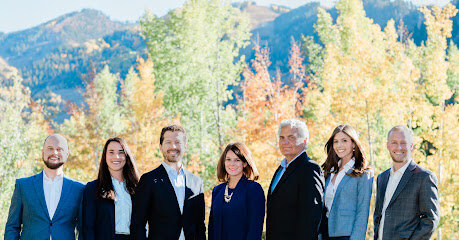Best Nursing Home Abuse Lawyers in Colorado
Share your needs with us, get contacted by law firms.
Free. Takes 2 min.
Or refine your search by selecting a city:
List of the best lawyers in Colorado, United States
About Nursing Home Abuse Law in Colorado, United States
Nursing home abuse refers to intentional or negligent actions that cause harm to residents of long-term care facilities. In Colorado, the law provides protection for elderly and vulnerable adults living in nursing homes and assisted living centers. Abuse can take many forms, including physical, emotional, sexual, and financial mistreatment, as well as neglect and exploitation. Colorado has laws in place to ensure that residents in such facilities are treated with dignity, respect, and care, and any violation of these rights can be grounds for legal action.
Why You May Need a Lawyer
A lawyer specializing in nursing home abuse can help victims and their families navigate complex legal situations. You may need legal assistance in cases where:
- You suspect a loved one is experiencing abuse, neglect, or unexplained injuries in a facility.
- There are sudden changes in your loved one’s financial accounts or assets.
- The facility fails to provide adequate care leading to pressure sores, malnutrition, dehydration, or fall injuries.
- You encounter unresponsive or dismissive facility management when raising concerns.
- State agencies do not seem to take sufficient action after you file a complaint.
- You need help filing a lawsuit or negotiating a settlement for physical or emotional harm caused by a nursing home.
- You want to ensure your loved one is promptly relocated to a safer environment.
An attorney can guide you through investigations, evidence collection, insurance claims, and court proceedings, helping secure compensation and justice for your loved one.
Local Laws Overview
Colorado law provides comprehensive protection to residents of nursing homes and other long-term care facilities. Key aspects include:
- Mandatory Reporting: Colorado mandates that any person who suspects the abuse or exploitation of an at-risk elder or at-risk adult with intellectual and developmental disabilities must report it to law enforcement within 24 hours.
- Civil and Criminal Penalties: Perpetrators of abuse can face criminal prosecution as well as civil liability. Facilities may also face penalties, sanctions, or loss of licensure for failing to protect residents.
- Residents’ Rights: Colorado statutes outline specific rights for nursing home residents, such as the right to privacy, humane care, and to be free from physical or chemical restraints not required by medical conditions.
- Investigations: The Colorado Department of Public Health and Environment (CDPHE) oversees facility inspections and investigates abuse allegations.
- Legal Claims: Victims can file civil claims for damages under negligence, wrongful death, or medical malpractice laws, depending on the case details.
Understanding these laws can help families recognize legitimate grievances and pursue appropriate legal remedies.
Frequently Asked Questions
What are common signs of nursing home abuse or neglect?
Look for unexplained bruises, bedsores, frequent falls, sudden behavioral changes, malnutrition, dehydration, poor hygiene, withdrawal, or uncharacteristic financial transactions.
Who is required to report suspected abuse in Colorado?
Almost all individuals, including medical professionals, facility staff, and even family members, must report suspected abuse of at-risk elders and adults with intellectual and developmental disabilities within 24 hours.
What agencies oversee nursing homes in Colorado?
The Colorado Department of Public Health and Environment (CDPHE) monitors nursing home operations and responds to complaints. The Colorado Department of Human Services and local law enforcement may also become involved.
How do I file a complaint about suspected nursing home abuse?
You can file a complaint directly with CDPHE, law enforcement, or your local Adult Protective Services office. You may also consult an attorney for guidance.
Can I sue a nursing home for abuse or neglect?
Yes, victims or their families can file civil lawsuits seeking compensation for harm caused by abuse, neglect, or wrongful death resulting from facility misconduct.
What types of damages can be recovered in a nursing home abuse case?
Damages may include medical expenses, pain and suffering, emotional distress, punitive damages, and, in fatal cases, funeral and burial costs.
How quickly must I act if I suspect nursing home abuse in Colorado?
Mandatory reporters must report within 24 hours. Civil lawsuits are subject to statutes of limitations, generally two to three years, but early action is always recommended.
Is moving my loved one to another facility a good idea if I suspect abuse?
If you fear for your loved one’s immediate safety, relocation is important. Consult with authorities and an attorney to ensure safe and lawful transfer procedures.
What evidence is helpful when proving nursing home abuse?
Medical records, photographs of injuries, witness statements, facility documentation, and financial records can all serve as important evidence.
How can a lawyer help in a nursing home abuse case?
A lawyer investigates the case, helps gather evidence, deals with insurance companies, negotiates settlements, and represents you in court if necessary.
Additional Resources
If you or your loved one is experiencing or suspects nursing home abuse in Colorado, consider reaching out to the following resources:
- Colorado Department of Public Health and Environment (CDPHE): Investigates complaints against care facilities.
- Adult Protective Services (APS): Assists at-risk adults dealing with abuse, neglect, or exploitation.
- Long-Term Care Ombudsman Program: Provides advocacy and investigates complaints involving long-term care residents.
- Colorado Legal Services: Offers legal assistance for low income residents facing abuse or neglect issues.
- Local law enforcement: Handles reports of criminal activity or emergencies.
Next Steps
If you believe you or a loved one is a victim of nursing home abuse in Colorado, act as soon as possible. Here’s what you can do:
- Ensure the immediate safety of your loved one. If there is imminent danger, contact 911 or local authorities.
- Document all signs of abuse or neglect, including photos, notes, and statements from the affected individual or witnesses.
- File a report with the Colorado Department of Public Health and Environment, Adult Protective Services, or law enforcement.
- Consult with an experienced attorney specializing in nursing home abuse cases to discuss your legal options and next steps.
- Follow through with necessary medical evaluations and keep thorough records of care, communications, and actions taken.
Seeking legal advice early in the process can help protect your rights, hold wrongdoers accountable, and provide your loved one with the care and dignity they deserve.
Lawzana helps you find the best lawyers and law firms in Colorado through a curated and pre-screened list of qualified legal professionals. Our platform offers rankings and detailed profiles of attorneys and law firms, allowing you to compare based on practice areas, including Nursing Home Abuse, experience, and client feedback.
Each profile includes a description of the firm's areas of practice, client reviews, team members and partners, year of establishment, spoken languages, office locations, contact information, social media presence, and any published articles or resources. Most firms on our platform speak English and are experienced in both local and international legal matters.
Get a quote from top-rated law firms in Colorado, United States — quickly, securely, and without unnecessary hassle.
Disclaimer:
The information provided on this page is for general informational purposes only and does not constitute legal advice. While we strive to ensure the accuracy and relevance of the content, legal information may change over time, and interpretations of the law can vary. You should always consult with a qualified legal professional for advice specific to your situation.
We disclaim all liability for actions taken or not taken based on the content of this page. If you believe any information is incorrect or outdated, please contact us, and we will review and update it where appropriate.
Browse nursing home abuse law firms by city in Colorado
Refine your search by selecting a city.











